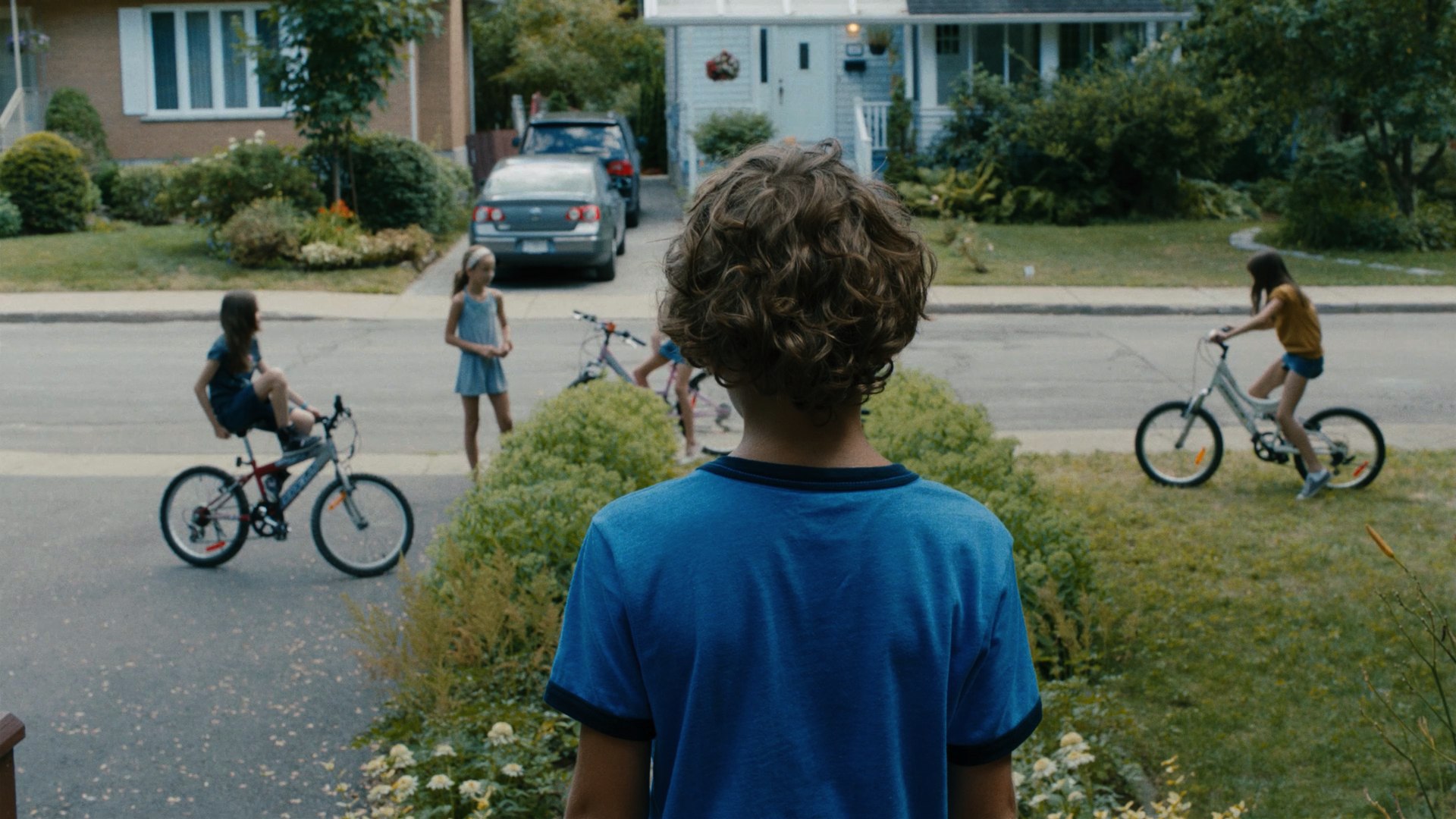I first came across Daybreak while in the final programming deliberations of Slamdance 2014. When the film came on the screen our entire team of programmers were hooked. After it finished playing it was immediately decided the film would be in the program and wound up winning Best Narrative at Slamdance. Ian Lagarde’s Daybreak is a beautifully horrific film surrounding the violent implosion of a group of pre-teens resulting from boredom in an affluent Montreal suburb.
Lagarde’s execution is impeccably sophisticated. The manner in which he captures the thought processes and point of view of these children with minimal dialogue is wholly impressive. The children’s performances themselves carry a unique combination of maturity and innocence that lend toward the film’s success. But what makes this film particularly special is Lagarde’s ability to capture the authenticity of the children’s point of view. The story is based on Lagarde’s personal experience which he tells us “pretty much guided the narrative point by point.”
One of the more fascinating aspects about this film is the subtle focus on the political dynamics of the pack. The group operates as a seemingly inseparable unit and functions within a hierarchical structure. They spend much of their time discovering limits and pushing one another to see how far they will go. While there is clearly a pack leader, they seem to operate as a fluid collective in which general curiosity supersedes morality. Lagarde tells us “I didn’t want to make a moral film, I wanted to make something more subjective, from the kid’s point of view, shot at their height and concentrated on their faces. I hate morals, especially in retrospect. I don’t think it even makes sense to judge an event based on morals. I am way more interested in group dynamics and the loss of reason or independent thought in these contexts.”
When I first saw the film I couldn’t quite understand how Lagarde managed to make a film from a child’s perspective that felt so uniquely real. Many films involving violent children seem forced, but Daybreak carries with it a distinct reality that is directly attributable to Lagarde’s personal experience. While the point of view is that of children, nothing about the film focuses on how an adult might perceive a child’s perspective. Children aren’t aware that they think or behave like children, and Lagarde does a wonderful job staying true to the inner workings of a child’s mind. It is safe to say that we have all had similar experiences during our childhood. We have all known what it is like to push ourselves to the limits, watch others push themselves, and ultimately, we all know what it is like to get caught.

 Jeanette Bonds
Jeanette Bonds